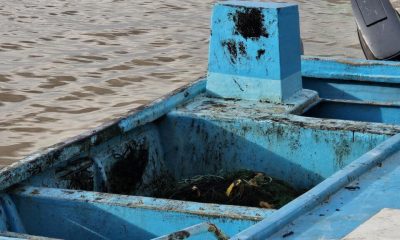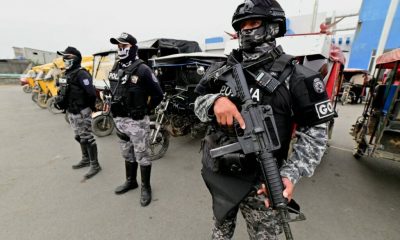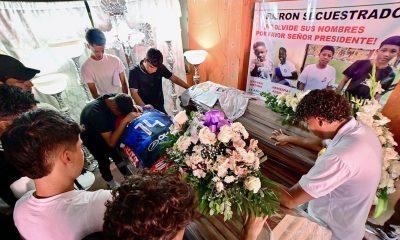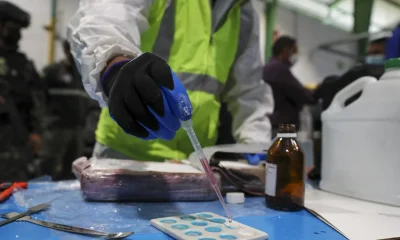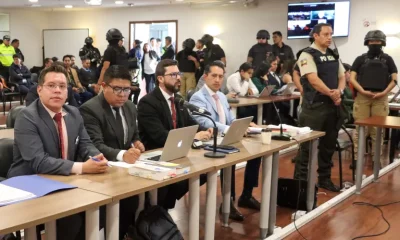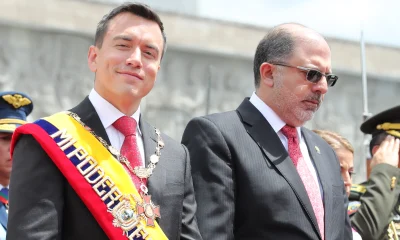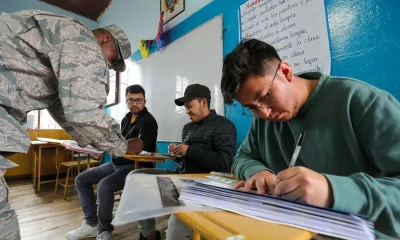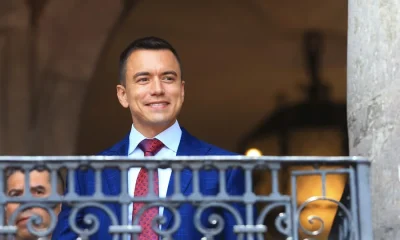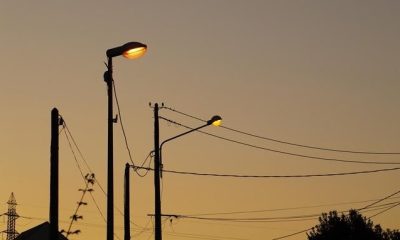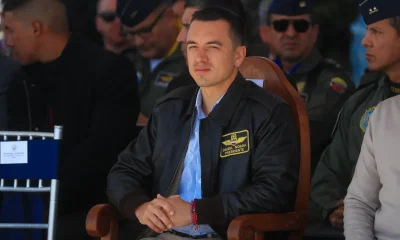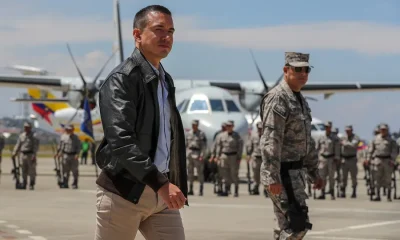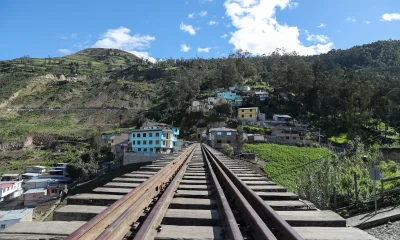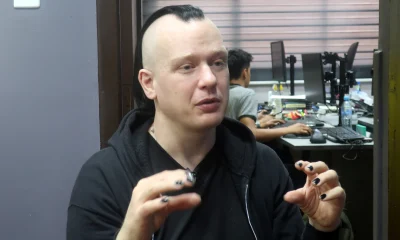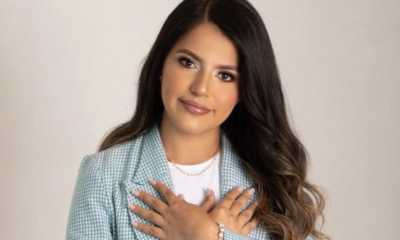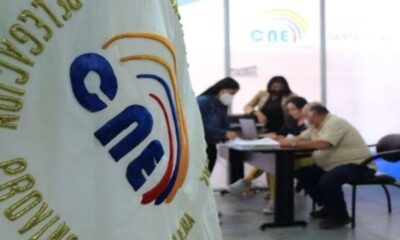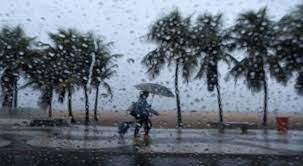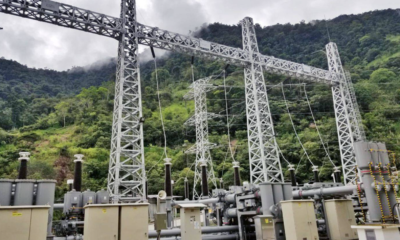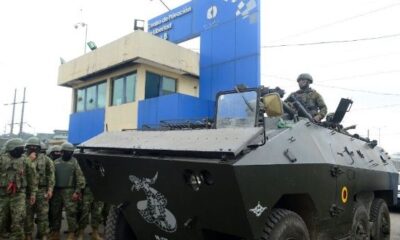International
Ecuador declares the Mexican ambassador persona “non grata” by comment by López Obrador
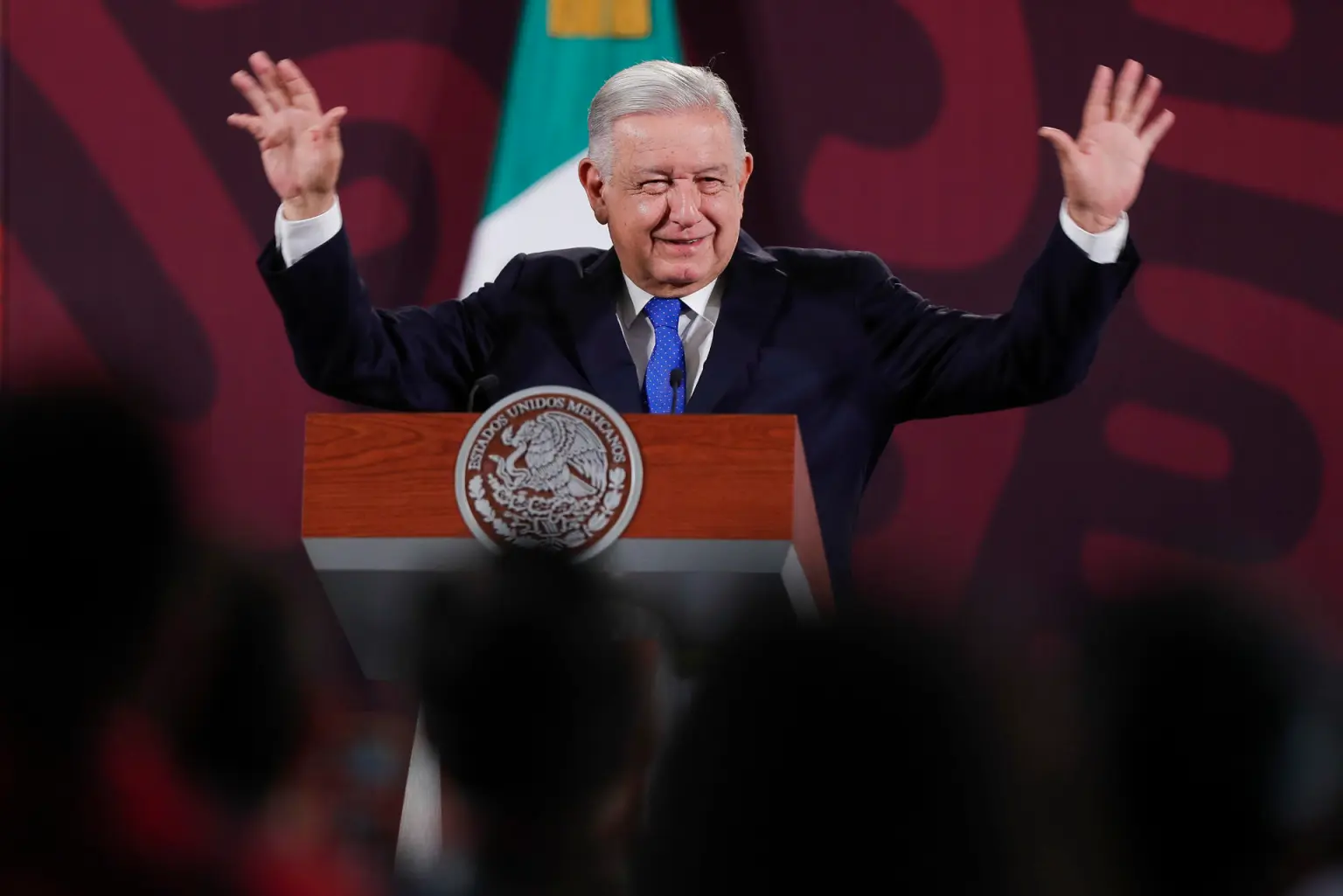
The Government of Ecuador announced that it decided to declare the Mexican ambassador in Quito, Raquel Serur, persona “non grata”, in response to statements by the Mexican president, Andrés Manuel López Obrador, about the murder of former Ecuadorian presidential candidate Fernando Villavicencio and the apparent electoral consequences of that crime.
The Foreign Ministry of Ecuador, in a statement, invoked the principle of “non-intervention” in the internal affairs of another country and the Vienna Convention to take the diplomatic measure that implies the departure of the ambassador’s country.
In addition, he indicated that the South American nation is still experiencing the “mourning” for the shooting crime of Villavicencio, which occurred in August last year, when the then presidential candidate was leaving an electoral political rally in a busy neighborhood in northern Quito, in broad daylight.
In a press conference in his country, the Mexican president commented on the consequences of Villavicencio’s assassination in the context of last year’s presidential elections in Ecuador, which gave the victory to the current president, the businessman Daniel Noboa.
López Obrador said that, according to his criteria, the crime of Villavicencio harmed above all Luisa González, the presidential candidate of the Citizen Revolution movement, led by former progressive governor Rafael Correa (2007-2017), an opinion that has also been shared by several electoral analysts in Ecuador.
The Mexican ruler assured that there is social responsibility in the context of situations of violence and said that the media do not escape from it either.
“In the context of the recent and very unfortunate statements of the president of Mexico,” the Ecuadorian Government “has decided to declare the Mexican ambassador ‘persona non grata’ in Quito,” by invoking “article 9 of the Vienna Convention on Diplomatic Relations,” said the Foreign Ministry in Quito.
He assured that “Ecuador is still mourning” for the murder of Villavicencio, a crime that “caused shock in Ecuadorian society and attacked democracy, peace and security.”
“The country continues to face transnational organized crime that threatens the State, its democratic institutions and its population,” he added.
He also emphasized that the Ministry of Foreign Affairs will maintain its “firm commitment to permanently ensure respect for the dignity and sovereignty of the Ecuadorian State and the fundamental principle of non-intervention in the internal affairs of other States.”
Villavicencio was shot at gunnail on August 9, 2023, at the exit of an electoral rally in Quito when there were eleven days left before the first round of the extraordinary general elections.
The murder of Villavicencio raised the wave of violence that has plagued Ecuador for about three years to unprecedented heights, so the country became one of the most violent in Latin America, with 45 homicides per 100,000 inhabitants in 2023.
On January 8, President Noboa decreed a state of emergency at the national level due to the high levels of insecurity, and declared a situation of “internal armed conflict,” for which he renamed 22 organized crime groups as “terrorists.”
The spiral of violence in Ecuador was unleashed just after Noboa announced its decision to implement a plan to regain control of prisons, many of them dominated internally by groups of criminals, whose rivalries have left more than 450 prisoners killed since 2020 in a series of prison massacres.
International
Trump urges Putin to reach peace deal
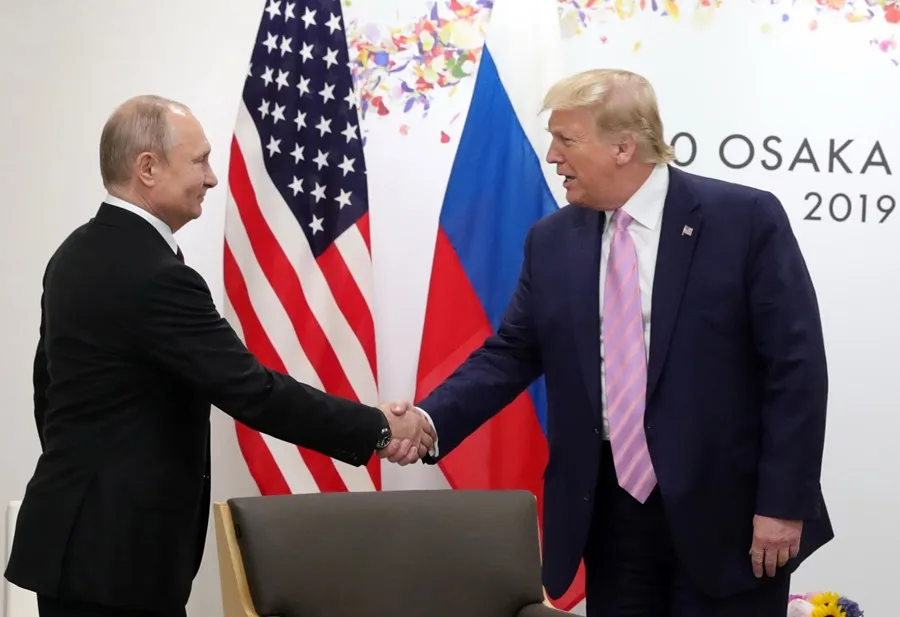
On Monday, U.S. President Donald Trump reiterated his desire for Russian President Vladimir Putin to “reach a deal” to end the war in Ukraine, while also reaffirming his willingness to impose sanctions on Russia.
“I want to see him reach an agreement to prevent Russian, Ukrainian, and other people from dying,” Trump stated during a press conference in the Oval Office at the White House.
“I think he will. I don’t want to have to impose secondary tariffs on Russian oil,” the Republican leader added, recalling that he had already taken similar measures against Venezuela by sanctioning buyers of the South American country’s crude oil.
Trump also reiterated his frustration over Ukraine’s resistance to an agreement that would allow the United States to exploit natural resources in the country—a condition he set in negotiations to end the war.
International
Deportation flight lands in Venezuela; government denies criminal gang links

A flight carrying 175 Venezuelan migrants deported from the United States arrived in Caracas on Sunday. This marks the third group to return since repatriation flights resumed a week ago, and among them is an alleged member of a criminal organization, according to Venezuelan authorities.
Unlike previous flights operated by the Venezuelan state airline Conviasa, this time, an aircraft from the U.S. airline Eastern landed at Maiquetía Airport, on the outskirts of Caracas, shortly after 2:00 p.m. with the deportees.
Interior Minister Diosdado Cabello, who welcomed the returnees at the airport, stated that the 175 repatriated individuals were coming back “after being subjected, like all Venezuelans, to persecution” and dismissed claims that they belonged to the criminal organization El Tren de Aragua.
However, Cabello confirmed that “for the first time in these flights we have been carrying out, someone of significance wanted by Venezuelan justice has arrived, and he is not from El Tren de Aragua.” Instead, he belongs to a gang operating in the state of Trujillo. The minister did not disclose the individual’s identity or provide details on where he would be taken.
International
Son of journalist José Rubén Zamora condemns father’s return to prison as “illegal”
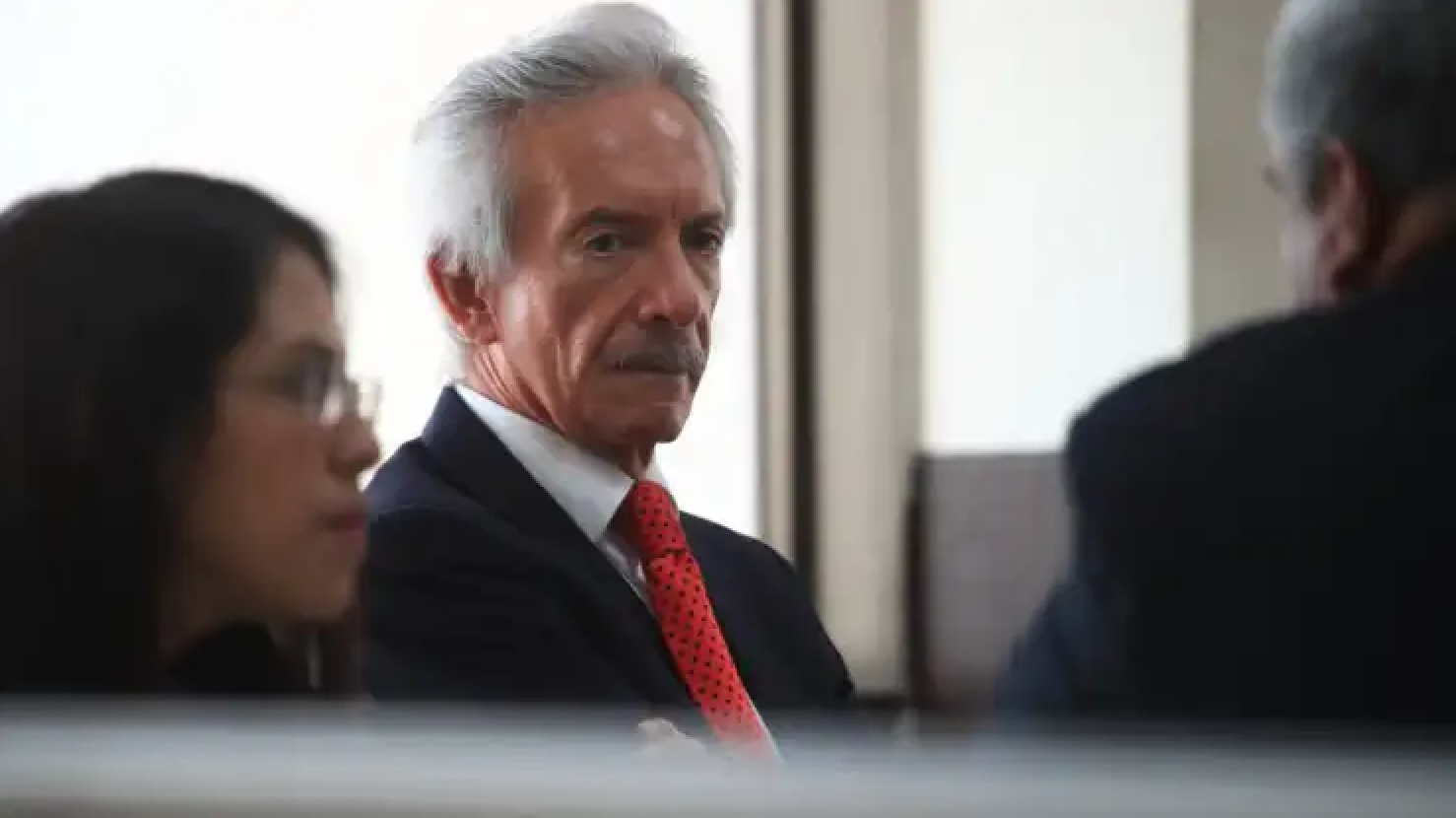
The son of renowned journalist José Rubén Zamora Marroquín, José Carlos Zamora, has denounced as “illegal” the court order that sent his father back to a Guatemalan prison on March 3, after already spending 819 days behind barsover a highly irregular money laundering case.
“My father’s return to prison was based on an arbitrary and illegal ruling. It is also alarming that the judge who had granted him house arrest received threats,” José Carlos Zamora told EFE in an interview on Saturday.
The 67-year-old journalist was sent back to prison inside the Mariscal Zavala military barracks on March 3, when Judge Erick García upheld a Court of Appeals ruling that overturned the house arrest granted to him in October. Zamora had already spent 819 days in prison over an alleged money laundering case.
His son condemned the situation as “unacceptable”, stating that the judge handling the case “cannot do his job in accordance with the law due to threats against his life.”
-

 Central America5 days ago
Central America5 days agoNicaragua denounces Costa Rica’s position in SICA as aligned with foreign interests
-

 Central America5 days ago
Central America5 days agoNicaragua’s new judicial law consolidates power in Ortega and Murillo’s hands
-
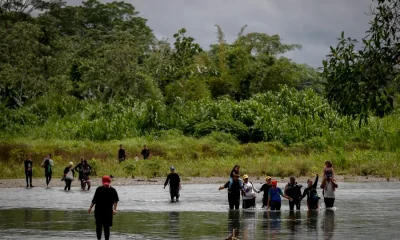
 Central America5 days ago
Central America5 days agoPanama’s president declares Darién gap ‘closed’ amid sharp drop in migrant flow
-

 International3 days ago
International3 days agoSon of journalist José Rubén Zamora condemns father’s return to prison as “illegal”
-

 International5 days ago
International5 days agoMarco Rubio warns Venezuela against military action against Guyana
-

 International3 days ago
International3 days agoMiyazaki’s style goes viral with AI but at what cost?
-

 Central America2 days ago
Central America2 days agoPanama police clarifies that Interpol alert for Martinelli is still pending
-

 International2 days ago
International2 days agoDeportation flight lands in Venezuela; government denies criminal gang links
-

 Central America16 hours ago
Central America16 hours agoU.S. Homeland Security Secretary urges Mexico to strengthen Guatemala border
-

 International16 hours ago
International16 hours agoTrump urges Putin to reach peace deal
-

 Central America16 hours ago
Central America16 hours agoPanama grants Martinelli 72-hour extension to travel to Nicaragua
-
Central America4 days ago
Nicaragua revokes legal status of 10 more NGOs, bringing total to over 5,600














